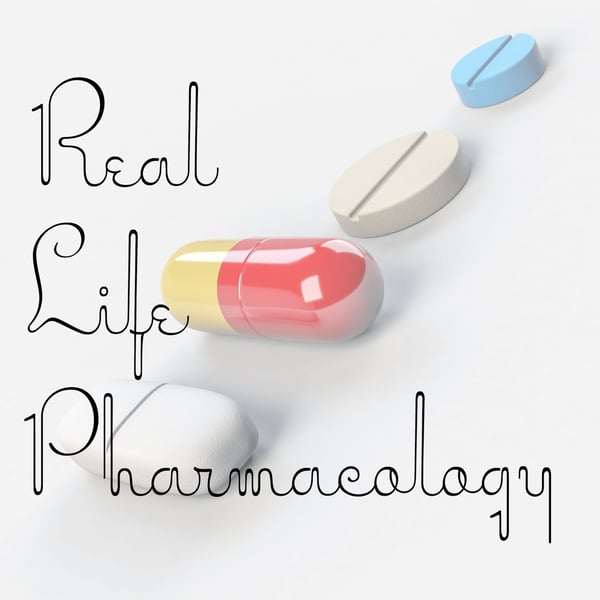Amoxicillin and Augmentin Pharmacology RLP Episode 022
Real Life Pharmacology - Pharmacology Education for Health Care Professionals
Eric Christianson, PharmD; Pharmacology Expert and Clinical Pharmacist
5 • 716 Ratings
🗓️ 5 July 2018
⏱️ 15 minutes
🧾️ Download transcript
Summary
Enjoy the education!
Transcript
Click on a timestamp to play from that location
| 0:00.0 | On today's episode of the real-life pharmacology podcast, I'm going to cover a couple of really, really common antibiotics. |
| 0:10.2 | And I'm going to cover penicillin type antibiotics. |
| 0:14.1 | And specifically, I'm going to cover amoxicillin and also the combination of amoxicillin and clavulaneate. |
| 0:21.7 | So moxacosillin sometimes referred to as a moxylum, a moxicillin in clavillanate combination |
| 0:27.4 | referred to as brand name augmentin. |
| 0:31.9 | And the mechanism of action of all penicillin type antibiotics is that they ultimately inhibit bacterial |
| 0:41.7 | cell wall formation. So as the bacteria is growing, producing its components and promoting growth, |
| 0:50.3 | what the drug does is inhibit the production of the cell wall, which is obviously required |
| 0:57.0 | for the bacteria to continue to grow and flourish. |
| 1:02.0 | Now it binds in the penicillin binding protein area or site of the cell wall. |
| 1:10.0 | It's a very specific name there. So that was obviously made up by |
| 1:17.0 | scientists that found out where they bind in there and that name came about from that reason. So |
| 1:24.4 | pretty easy to remember where that drug actually binds within the cell wall |
| 1:30.7 | and as part of that cell wall formation. Now I did mention one other drug and that's clavulaneate. |
| 1:36.3 | So the only way this drug is available is in combination with amoxicillin. And again, that's in |
| 1:41.8 | augmentin. This drug actually inhibits bacteria from |
| 1:51.2 | becoming resistant or helps reduce the chance that there's resistance to amoxicillin alone. |
| 1:59.6 | And so bacteria, they produce these enzymes called beta lactamases. |
| 2:04.8 | And these beta lactamases can serve a function to break down drugs that we're trying to use to kill them. |
| 2:14.6 | So the bacteria can break down a drug like amoxicillin and be resistant to it. |
| 2:21.8 | The clavulaneate inhibits that beta-actamase enzyme, and so that allows for a moxacillin to be more |
| 2:29.9 | prevalent and do its thing in destroying those bacteria. So it really kind of broadens or extends |
... |
Please login to see the full transcript.
Disclaimer: The podcast and artwork embedded on this page are from Eric Christianson, PharmD; Pharmacology Expert and Clinical Pharmacist, and are the property of its owner and not affiliated with or endorsed by Tapesearch.
Generated transcripts are the property of Eric Christianson, PharmD; Pharmacology Expert and Clinical Pharmacist and are distributed freely under the Fair Use doctrine. Transcripts generated by Tapesearch are not guaranteed to be accurate.
Copyright © Tapesearch 2025.

